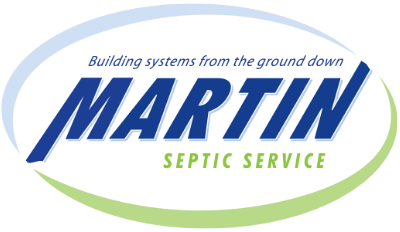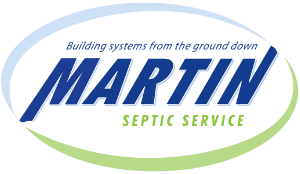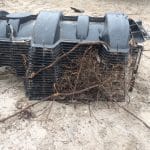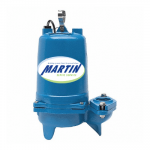Our environmental impact has become an increasing concern for many Americans. Our oceans are filled with trash, the natural habitat for local wildlife is being destroyed, and our reliance on plastic is getting out of hand. Our waste and its impacts have grown to levels we can’t quite manage. For those who are environmentally conscious these factors may affect their home buying process. These responsible buyers often wonder if septic systems have a negative impact on the environment.
Septic vs Sewer
Most homeowners don’t understand the real differences between a septic system and a sewer system. There are pros and cons to each of these, but both act in similar ways to decontaminate wastewater before it is reintroduced to the environment.
Having a sewer system can be convenient for many homeowners because there’s no maintenance required, as long as nothing breaks. However, these sewer systems put a lot of strain on our local infrastructure to manage the ever-increasing volume of waste produced by each household. This means that by having a septic system and properly maintaining it you can reduce this burden while properly treating any wastewater.
How does a Septic System Work?
A septic system works in several stages to treat water before it is released into the soil. As water leaves the house it is directed into a holding tank known as the septic tank. This tank is divided into 2 parts and this is where the initial breakdown of harmful bacteria occurs. Naturally occurring bacteria live inside of this tank and breakdown any solid matter before it is moved on to the second portion of the tank. In the second section this process is repeated so that only liquid is passed into the leach lines. This water is then slowly released into a specially prepared drain field to allow any further contaminants to be removed as the water is pulled down through the soil.
So, is a Septic System Bad for the Environment?
You might still be wondering if septic systems are bad. The answer is no, with proper maintenance and care a septic system can be an efficient and environmentally responsible way to manage household wastewater. However, if homeowners choose not to properly care for their septic systems not only can it create negative environmental impacts it can also result in large repair costs down the line.
Responsible Septic System Usage
Let’s look at some of the ways that you can responsibly care for your septic system to prevent problems.
Flush Responsibly
One of the main ways you can be responsible is by watching what you flush into your septic system. Things such as toilet wipes, coffee grounds, harsh chemicals, and many more can be damaging and slow your systems efficiency. These things shouldn’t be flushed into any system, including the public sewer system. They do not decompose and can create large blockages in both a septic system and in the larger sewer system pipes.
Avoid grease
This one is so important that it deserves its own section. Grease can be especially damaging to your septic system. Many people pour excess grease down the drain while running hot water thinking that this will allow it to drain without any problems. Typically, this works. At least in our drain lines inside the house. However, they don’t think about what happens once it travels further down the line. As this grease travels into your septic system, it will begin to solidify and can easily clog your system creating backup and a variety of potential problems.
Don’t DIY Clean
There are a variety of products or DIY options for cleaning your septic tank. These are never a good choice. They can damage both the natural bacteria that keeps your system running smoothly and the septic tank itself. These quick fixes may seem cost effective in the short run but when faced with repairing a damaged or under functioning septic tank, you will quickly realize that this is a process best left to the professionals.
Professional Maintenance
To ensure that your septic system isn’t bad for your wallet or the environment, it needs to be professionally maintained. This includes regular inspections and pumping of the tank. The frequency of these inspections and pumping varies greatly depending on the type of system you have, your household size, and the size of your tank.
This is why it’s a good idea to have a professional company take a look at your family’s needs and help create a plan to extend the life of your septic tank and minimize the risk of any problems. As a general rule of thumb your septic system should be inspected every 1 to 3 years. If your system uses any mechanical components you should have it inspected more frequently to ensure proper functioning.
Pumping of the septic tank removes any additional buildup of solid matter before it can make its way into your leach lines. If a septic tank fills beyond the point that it’s able to manage all of the wastewater it can clog your system resulting in labor intensive repairs. This is why pumping your tank before it reaches this point is an essential part of being a responsible homeowner. Typically pumping of the tank needs to be done every 3 to 5 years depending on your household and size of your tank.
Your Environmental Impact is up to you
As with all environmental issues, your impact is entirely up to you. A septic system is not bad for the environment. An irresponsible owner is. Changing the world to become more environmentally conscious takes time and action by those who care. The same is true for any waste management system we use. Choosing to care for and be responsible inhabitants of this planet means that we recycle, we carpool, we eliminate single use plastics, and we care for our septic systems.







